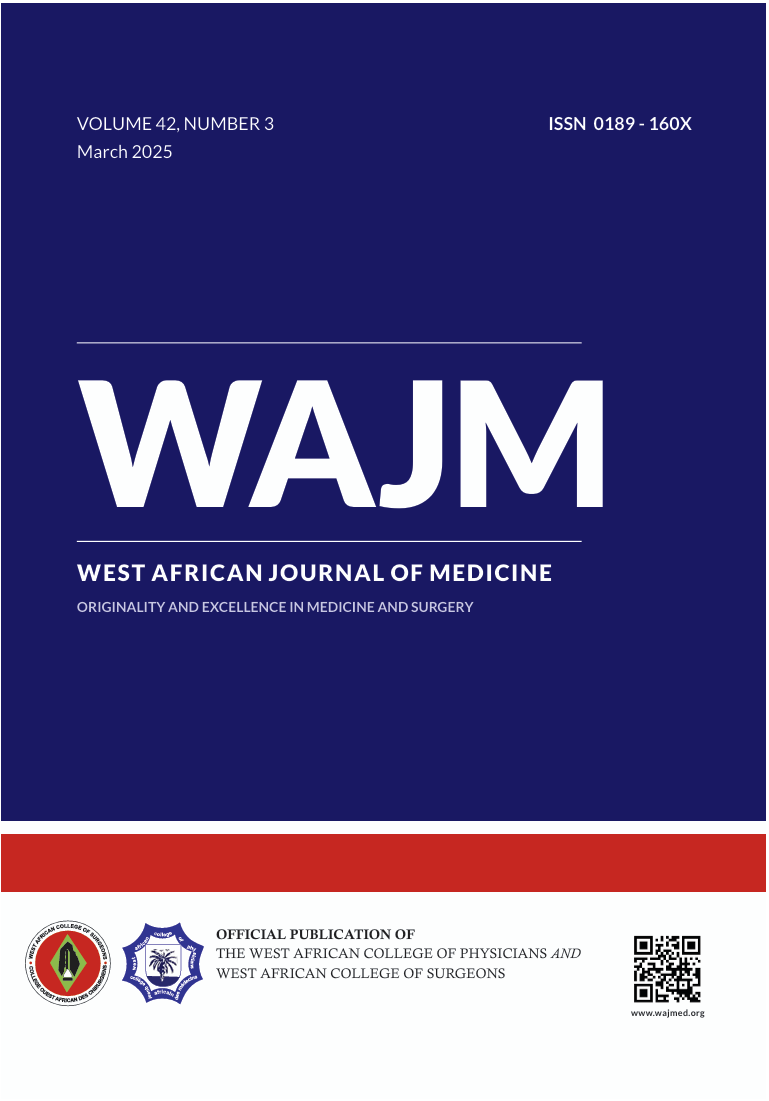ORIGINAL: Knowledge, Attitude and Perception of Medical Students at the University College Hospital, Ibadan towards Female Genital Mutilation
West Afr J Med. March 2025; 42 (3): 208-214 PMID: 40845166
Keywords:
Attitude, Female Genital Mutilation, Knowledge, Perception, StudentAbstract
Introduction: Female genital mutilation (FGM) is prevalent in many parts of Africa, Asia and the Middle East. Healthcare providers are key players in its medicalization; hence, effort must be put in place to discourage this harmful practice right from inception of medical training.
Method: A descriptive cross-sectional study conducted amongst clinical medical students at the University College Hospital, Ibadan, between February and March 2022. Purposive sampling was utilized to recruit 380 participants. A self-administered questionnaire was used to collect data which was analyzed using IBM SPSS version 26. Descriptive statistics were generated, and Chi-square was used to test the association between categorical variables. Logistic regression analysis was performed, and p-value was set at 0.05.
Result: Three hundred and eighty questionnaires were administered, however, only 355 (93.4%) were completed and suitable for analysis. The mean age of the respondents was 22.9 (± 2.0) years. There were more males (58.9%) than females (41.1%) with majority being of Yoruba (73.2%) extraction. Sixty-eight (19.2%), 170 (47.9%), and 152 (42.8%) respondents had good knowledge about classification, complication, and medicalization of FGM respectively. A significant association (p<0.05) was noted between religion, gender and years of training with knowledge about FGM. The majority of the respondents' attitude towards FGM was that of objection (91.3%) and outright abolishment (90.4%).
Conclusion: Prevention of FGM should be a collaborative effort by healthcare practitioners through the incorporation of programmes to equip trainees on the strategies to eliminate FGM. Medicalization of FGM should be discouraged through targeted mass education and enforcement of penalties.


